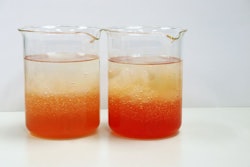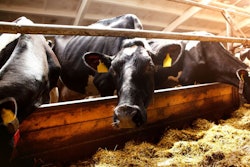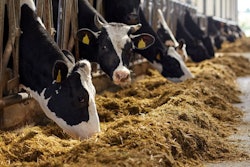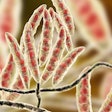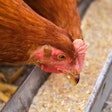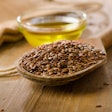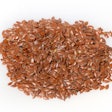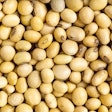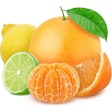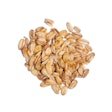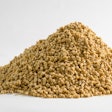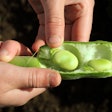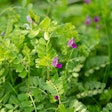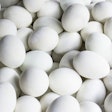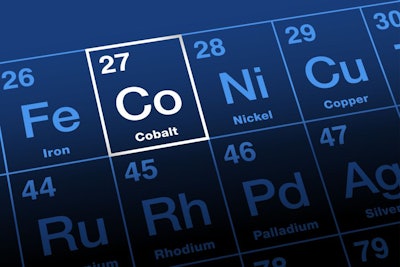
Feeding too much cobalt has many risks, it plays a central role in vitamin B12 formation.
Cobalt is not needed by farm animals like poultry, pigs and ruminants. What they need is vitamin B12, in which cobalt plays a central role. Vitamin B12 is formed by microbes found in the gut of animals. As such, animal-derived products are rich in vitamin B12.
In practice, monogastric animals are not supplemented with cobalt because they cannot absorb the vitamin B12 formed by bacteria in their large intestine or, if they can, the absorbed quantity is not sufficient. This is why, in the past, such feeds where routinely supplemented with animal-derived ingredients. After the discovery of vitamin B12, feeds for monogastric animals are formulated with supplemental vitamin B12. Some old premixes still contain cobalt for these species, despite research pointing in the opposite direction and even the recent ban on using cobalt in such species by the European Union.
In contrast, feeds for all ruminant species are routinely supplemented with cobalt, which is used by the bacteria in their rumen to form vitamin B12, which in turn is absorbed by the animal when these bacteria are digested by the animal’s true stomach later on. However, the research on supplemental cobalt in ruminant diets is decades old and rather inconclusive. It is estimated that the minimal level required is 0.1 ppm cobalt, but that is for the whole ration, not just the premix. Nevertheless, many premixes contain enough cobalt to supply up to 10 ppm cobalt.
Feeding too much cobalt has many risks. First, some cobalt sources when inhaled can be carcinogenic. Second, cobalt is a heavy metal that is stored in the liver, and liver is consumed by humans, and increasingly by pets. Again, it is not in our best interest to have too much cobalt in our system, and the same applies to farm animals and pets. Lamentably, these are facts little known to some feed professionals, who routinely use high levels of cobalt. In our practice, we have encountered a farm where animals were actually consuming toxic levels of cobalt in their feed and their response was to reduce feed intake.
It is interesting that, according to European Food Safety Authority (EFSA) sources, all but one source of cobalt for animal feed use are not going to be renewed. This means the whole of the EU will depend on a single product of cobalt for all ruminant species. The reason why the other suppliers decided not to renew their registration license remains unclear, but the ban of cobalt use in monogastric species has reduced business substantially, and that may have played a role.
On a final notice and as a primer for the next blog, there is now a growing number of ruminant feed professionals who are interested in being re-educated in cobalt. How much is needed, how much should be supplemented and, interestingly, what is the basic level of cobalt in forages and concentrated feeds for ruminants?

